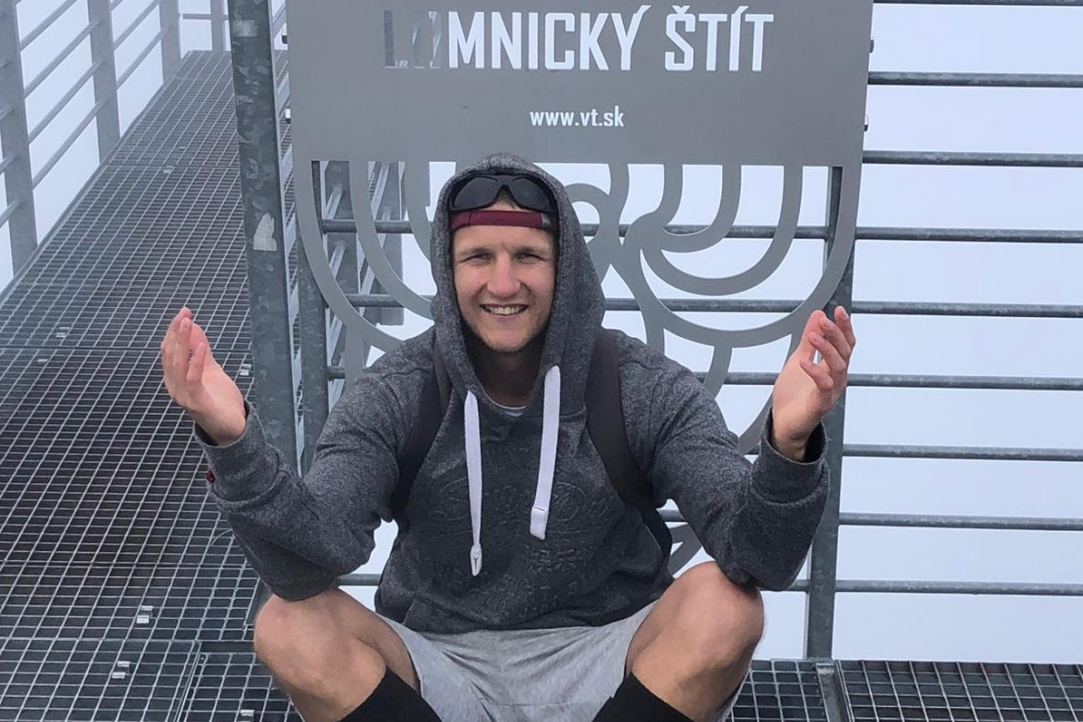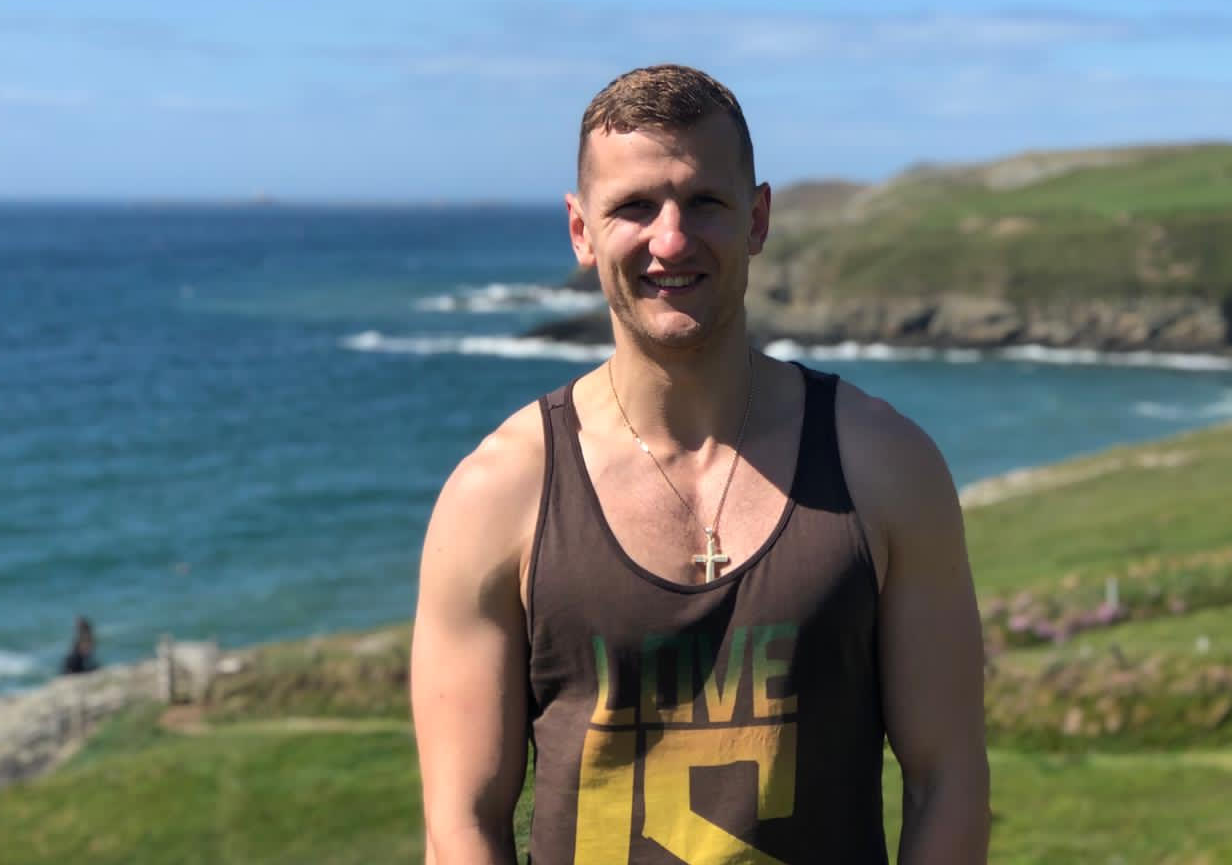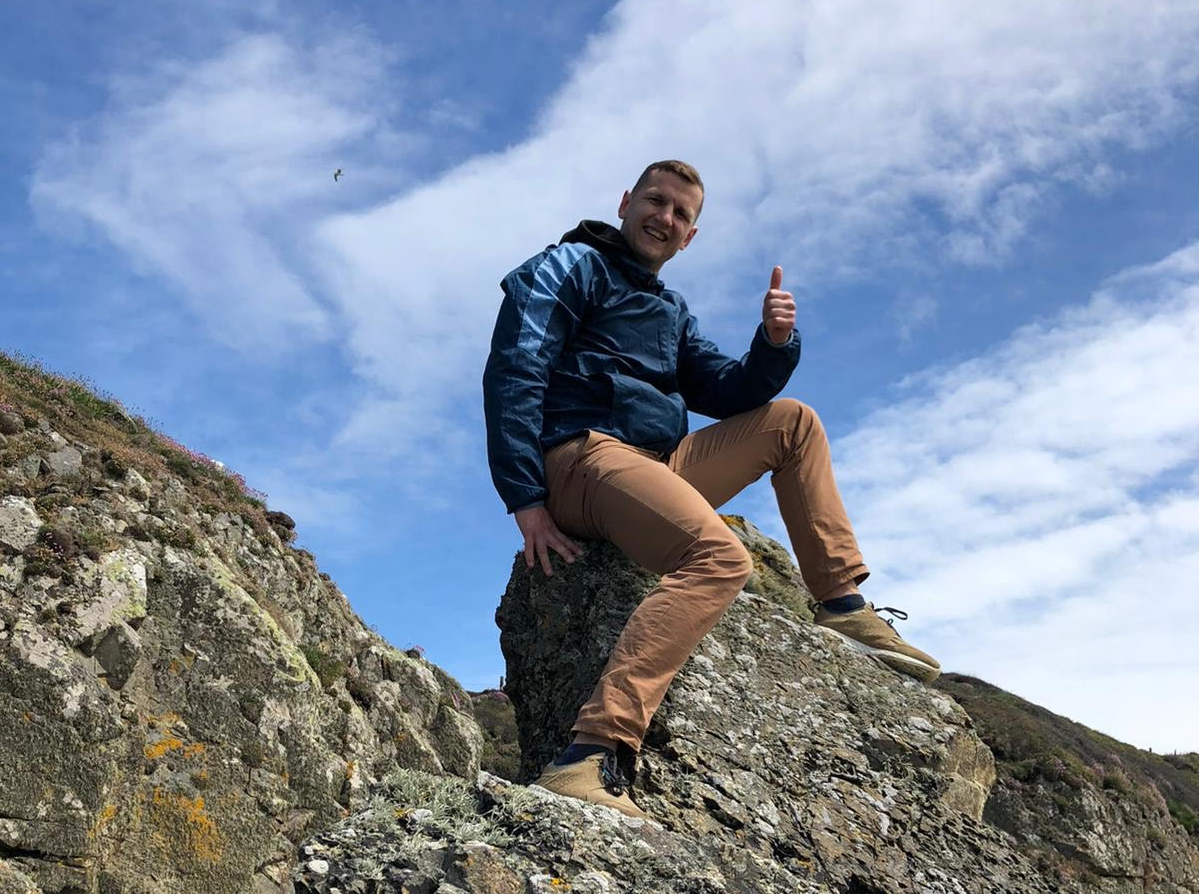'I was lucky enough to discover my vocation thanks to the fellowship of ICEF graduates'

Arturs Meskovskis enrolled in ICEF Master’s Programme in 2013 after earning his bachelor’s degree from the Stockholm School of Economics (Riga). Currently a quantitative analyst on XVA team at MUFG Office in London, Arturs shares how to find a perfect master’s program at the confluence of STEM and finance, how learners can benefit from ICEF’s family-like community, what quants typically work with, and where a financial industry expert can learn data science.
How I developed a passion for economics
I can’t say I enjoyed Economics as a school student, to be honest. I was more into mathematics, chemistry, physics and physical education. I first wanted to enroll in polytechnic university to study chemical technology, then management, and I even applied a maritime academy to become a navigator. But in the end I chose what was trending – the Stockholm School of Economics, a high-profile European university with a campus in the Baltic States. With approximately 120 economics majors, SSE’s programme has a duration of three years and is delivered in a chamberlike setting. It was prestige and promising opportunities, rather than the economics major itself, that made me want to enroll in SSE. The education that it offers is truly international, and it came with opportunities to pursue my passion for mathematics.
I didn’t feel quite comfortable with the idea of becoming an economist, but at ICEF I’ve developed a passion for it and took a fresh look at myself
But the fact is, with western universities, economics appears to be more in the humanities department, with less STEM-related courses in the curriculum design. So, in this sense those who would like to study the quantitative side of economics can benefit from Russia greatly. As a student of ICEF, I was greatly surprised at how advanced my fellow students were in the field of mathematics. The people in my group came from a background in mechanics and physics – for me an indication that my chosen programme was high quality. ICEF raised my self-esteem: I realized I could compete with techies, I was progressing academically quite well and I made friends with advanced mathematicians. This made me look at economics from a different angle and has paved the way for me towards further studies and career.
What shaped my choice of a master’s programme
The Stockholm School of Economics in Riga is a very small university, almost like a family, where student work unfolds mostly in international groups of students from different countries. English wasn’t our native language, but we got accustomed to using it as a language of professional communication. We had a fairly high workload and deadlines that were so tight that we had to stay up late in the library to meet them. There was only little time for quantitative aspects, though, so I had a strong desire to continue my studies and apply for a master’s program that would have a greater concentration on mathematics, statistics, econometrics and programming.
In our third year, one of us went on exchange to ICEF and brought back great impressions. I heard him describe ICEF as very similar to SSE. Its programme, too, was international, the only difference being the cooperative partner, which is the London School of Economics.

I did consider applying for a master’s degree abroad, but studying in, say, London was a way too expensive for me back then. There was simply no better alternative than ICEF. Its programme looked absolutely satisfying and had a strong concentration on mathematical courses. What was more, ICEF offered high-level training and international qualifications. It had an enrollment quota for international students. I submitted my documents and got admitted.
What makes ICEF master’s programme special
ICEF master's programme had an enrollment of around 40 people, which was cool because we could communicate one-to-one with our teachers. I became good friends with Emiliano Catonini, my academic supervisor with whom I started to communicate outside the university after I started teaching at ICEF. Such close human contact that I have built with him is rare in a school as large as HSE.
When rector of the Stockholm School of Economics in Riga was on a visit to HSE, he recognized me and came up to greet me, to the surprise of many – something that can hardly be expected of the rectors of the Russian universities, simply because the Russian universities are huge, with bachelor’s enrollments standing at hundreds of people. ICEF, with its chamberlike environment, is completely different in this respect. It’s about the close-knit fellowship of students and the faculty staff that exists here at ICEF to ease the learning process and the adaptation to the international research environment.
There were two things that attracted me to ICEF – globally recognized degree and concentration on quantitative courses
Most of my fellow students at ICEF had STEM degrees. With strong mathematical background, they were a perfect fit for ICEF, whereas I had to work harder at the beginning to learn all ins and outs. The courses I found especially helpful were econometrics, taught by Fabian Slonimczyk, and R-programming by Dean Fantazzini.
How I was choosing between research and industry
ICEF students start to pursue research endeavors as early as the first year. When choosing the domain for my term paper – real estate prices in different markets, an extensively explored topic at the time – I relied on my academic interests and experience. Maxim Nikitin referred me to Carsten Sprenger, the then leader of HSE Laboratory of Financial Economics who was engaged in a similar line of research. We worked very well together. I wrote my thesis under Carsten's supervision and then joined his laboratory to assist him as a teacher for his course.
I graduated with honours and considered doing a PhD degree. I even had a supervisor, Alexei Boulatov, who agreed to supervise my PhD thesis. But in the end I chose to work in the industry. I returned to Latvia and joined Credit Suisse as a quantitative analyst. The researcher experience I received at ICEF has proved a good asset to put to my portfolio and a solid background to help me handle complex tasks as part of a highly competent team.
Where finance and data science come together
While in Moscow, I got a chance to work for a small hedge fund, to which I was invited by one of the graduates of ICEF. In terms of tasks and level of its team members, that experience provided me with some valuable knowledge. There was quite a lot of machine learning to be used. I felt I wasn’t competent enough to deal with it, so I began to look for ways to gain competence and that led me to become to quant. ICEF graduates helped me again by advising the Yandex School of Data Analysis. I fully trusted their choice as they were competent mathematicians and knew exactly why Yandex School of Data Analysis would be a good fit for me as a mathematician. As a result, I did a fairly solid computer science course to complement my knowledge of finance, but, honestly, there’s still a shortage of the training programmes at the confluence of these two fields.

As someone in quantitative analysis, I benefit from my profound knowledge of economics. Not only have I learned building regression models at ICEF, I gained the understanding of all factors contributing to economic situations. It is the understanding of what stands behind the formulas, not mere operation of these formulas, that has given me an enormous impetus for professional growth.
What quants do
I am currently a quantitative analyst at MUFG. Quants can work in a variety of fields, they are versatile. They typically work with risk calculations, trading, and in other departments of a bank. During my time with Moscow-based hedge fund, I was engaged in developing algorithmic trading strategies, which, too, involve quantitative analysis.
A career as a quant generally requires STEM-related qualifications and a graduate degree in finance. I was lucky enough to discover my vocation thanks to the fellowship of ICEF graduates. Having used that opportunity to gain initial experience in quantitative analysis, I realized I wanted to be in it and grow professionally as a quant.